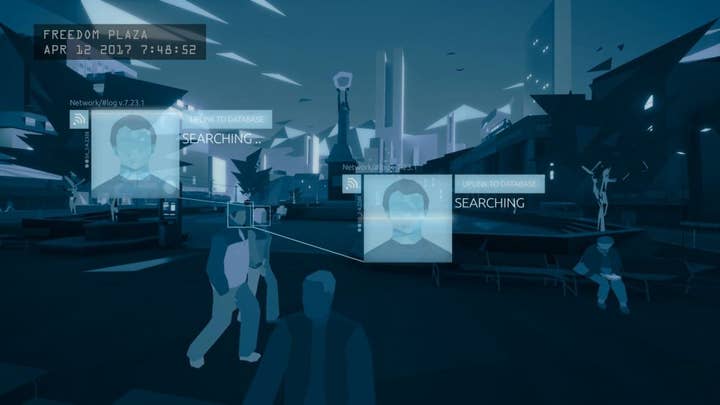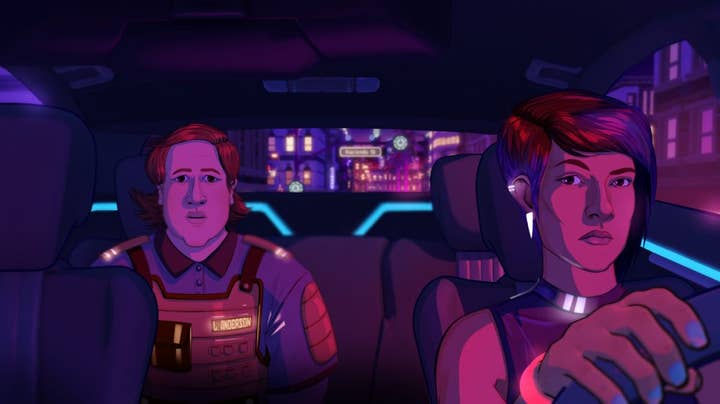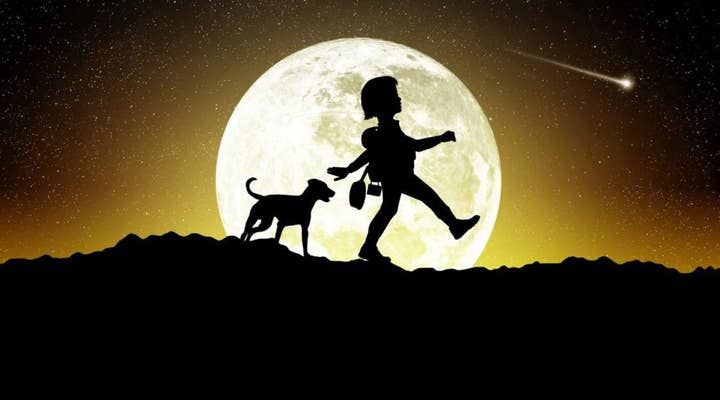Fellow Traveller: "Indie publishers need to stand for something"
Chris Wright on recovering from the collapse of the Australian games industry to found an indie publisher with a distinct voice
For too many years, the story of the Australian game development has been one of survival.
A decade ago, its national industry was built on studios doing work-for-hire projects for major publishers. For Chris Wright, the former marketing director of Blue Tongue Entertainment, that meant working on kids games for THQ -- relatively inexpensive counterparts to enormously expensive Hollywood movies that were once a staple of the industry release schedule.
"Australia had traditionally been a cheap-but-good place to develop, and that worked for licensed games," Wright said when we met at Melbourne Games Week last year. "I was at THQ in the days of The Incredibles and Cars.
"Cars was one of the best-selling games of that year [2006]. I remember it outsold Grand Theft Auto. It was on a lot of platforms, I guess, but it sold more than GTA, and that's kinda crazy."
Work-for-hire projects of that kind were the lifeblood of the Australian industry, but that would come to an abrupt end. The advent of smartphones had made casual gaming cheap and abundant, severely undermining the market for boxed kids games. When the global financial crisis hit, every major publisher cut spending, cancelled projects, and slimmed headcounts. Australia was a specialist in the wrong kind of development, and within a few years it had lost both vital revenue streams and major employers, as local developers closed and international publishers withdrew from the region.
"That talent loss... it was almost a whole generation of game developers"
"The last one I worked on at THQ was [Pixar's] Up, and I remember having to convince retailers to stock it," Wright recalled. "Previously, that would have been a game they'd fight over."
THQ closed its studios -- Blue Tongue included -- in 2011, but by that time it was far from a surprise. Australian developers had been closing one after another for a year or two already, victims of the same shifting market forces that ultimately caused THQ to close down for good. Like so many others, Wright was faced with a stark choice: rebuild the national industry from scratch, with none of the assurances of old, or simply depart for a country in a better position.
"Most of the talent left," Wright said. "The people I worked with at Blue Tongue Entertainment, a huge number of those people are now working on AAA games like God of War... They've gone off and done amazing things, but that talent loss... it was almost a whole generation of game developers."
Wright elected to stay, as did people like Defiant Development founder Morgan Jaffit, League of Geeks co-founders Trent Kusters and Blake Mizzi, and Hipster Whale's Matt Hall. They are now all figureheads of a resurgent Australian industry, one with the lessons of the past in its very foundations. The humbling of that period was at the core of so many discussions about the national industry during Melbourne Games Week, but the message was clear: the new Australian industry is one built on independence, self-reliance and, crucially, original IP.
"We have a number of successful places where people can actually go and be employed, and that's a crucial thing; starting jobs for graduates to go and learn their craft," Wright said. "They don't have to go overseas or start up their own thing. We're starting to get that back.

"But I think we're still missing those mid-tier developers, and we need more of them; viable 20-person or more companies."
Indeed, Wright is the founder of what could become one of those reliable employers, and an important part of the infrastructure for any growing games industry: Fellow Traveller, previously known as Surprise Attack Games, an indie publisher preparing for the busiest year of its seven-year lifetime.
According to Wright, he foresaw the need for a publisher in Australia while still at Blue Tongue. It was abundantly clear that his studio would follow so many others into oblivion, and whatever industry still remained in Australia would be composed of indie developers, in dire need of finding and building an audience.
"It was pretty brutal, but we had a bit of time to think about what we might do," Wright said of Blue Tongue's final months. "There weren't many indie publishers at that point. I'm not sure I really knew of any... Indie record labels were my inspiration. If indie bands could form labels in the 80s and 90s, with digital distribution surely I could do the same.
"It was totally foolish. We had no IP. But the idea of the record label was always there, and indie record labels always had a flavour and a sound. The idea that we wanted to stand for something was there at the very beginning.
"In the early days that idea was Australian games. A record label based in Sheffield or Glasgow would go out and sign up the local bands. We wanted to be a publisher that was heavily integrated in the local creative scene, as a way to help the industry that's based here."
"Our two successful games are weird, and driven by narrative. We're quite good at this"
Australia certainly needed that help, and the first wave of games Surprise Attack signed were all made by local developers. One or two international projects eventually crept onto the slate, but Wright remained "very resistant to signing anything from overseas."
However, it soon became apparent that limiting its scope to Australian games "just wasn't a very good model" for an indie publisher. It was an arbitrary limitation that a growing number of competitors didn't have to reckon with, and more importantly, it was not a guiding factor for the people that matter the most when it comes to selling a game.
"It worked from a business viewpoint," Wright said. "We're in Australia, so we had an advantage in signing Australian games. But consumers don't care where games come from. They're not interested in it being an Australian game, or a Canadian, or British, or the US. Maybe in the UK they might care a bit more, but the UK is a bigger market."
As a landmass Australia is vast, but its population (around 24.6 million people) is smaller than that of every major territory in Europe. In addition, brain drain had depleted the country's already modest supply of developers, giving any publisher focused solely on the region a narrow range of quality products. Wright explained it like this: there are individual studios in Canada that have more developers than the whole of Australia. If he was to build a publisher that could help the country's industry to thrive, it would be necessary to look beyond its borders.
"What do consumers care about?" Wright posited. "Well, they care about the type of game. It was 2016, and we had launched [Team Fractal Alligator's] Hacknet the year before, so finally we had some money... We looked at the games we were signing, and we decided that we needed to find our flavour."

Wright and his team wrote their favourite indie games on a whiteboard and tried to find the common ground. The one thing that connected all of them was the importance of narrative; for all the differences in their mechanics and systems, they were driven by story. Wright signed Osmotic Studios' Orwell soon after, and it became the company's second hit.
"That really cemented it for us," Wright said. "Our two successful games are weird, and driven by narrative. We're quite good at this. The Fellow Traveller rebrand was really a public coming out, saying 'this is what we are'. It just took a while to sign the games to back up that statement.
"[Chance Agency's] Neocab was signed literally days before we announced the rebrand. [Feral Cat Den's] Genesis Noir we signed a little bit before that... We'll have five or six games in that vein all coming out in the same year."

At Game Connect Asia-Pacific, Wright talked about 2019 as an "inflection point" for his label -- once known as Surprise Attack and focused on Australian developers, now known as Fellow Traveller and focused on daring, narrative-driven games. It will mark the end of "a tough couple of years" in which the company has been limited to just one or two launches a year, and the start of a busier release schedule with a defined voice.
Eight years on from the collapse of Blue Tongue, Wright finally has his indie record label.
"I firmly believe that indie publishers need to stand for something, because being 'indie' doesn't mean anything any more," Wright said. "As we were working on our messaging [for Fellow Traveller], I looked at the websites of the other indie publishers -- or at least 20 of them -- and they were mostly identical. You could copy and paste the description of what they are and what they do. I looked at that, and ours was exactly the same as well. We were all guilty of that.
"There is an argument that the publisher should be there to put the developer on a pedestal, and it should be all about the developer -- we subscribe to that to a degree. But the label is there to add value to the game, and if you aren't building an audience around your label then you're not servicing the developer.
"Our goal is: can we get 30,000 people who are fans of Fellow Traveller? If we do that, and half of them buy our games at launch, then all our games can be successful just from that core fanbase. It will just take two or three years to really build up."

